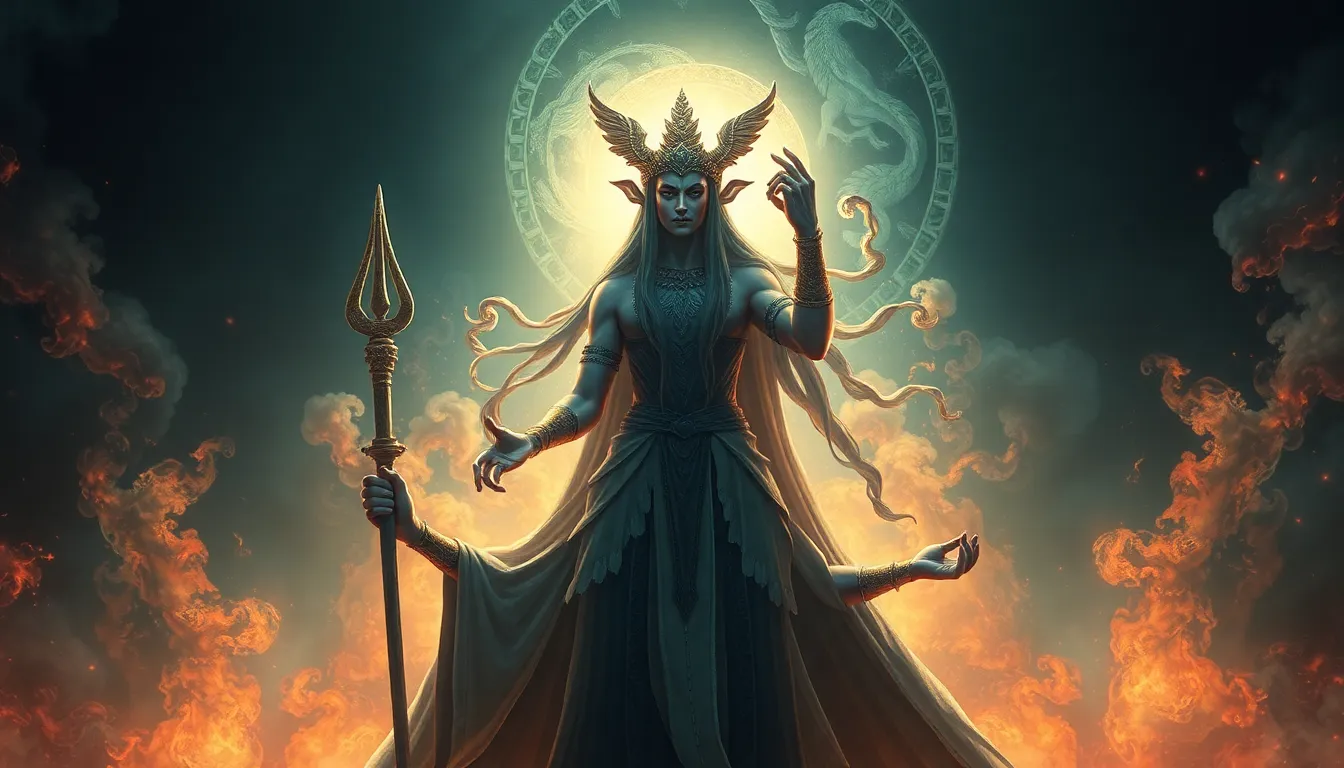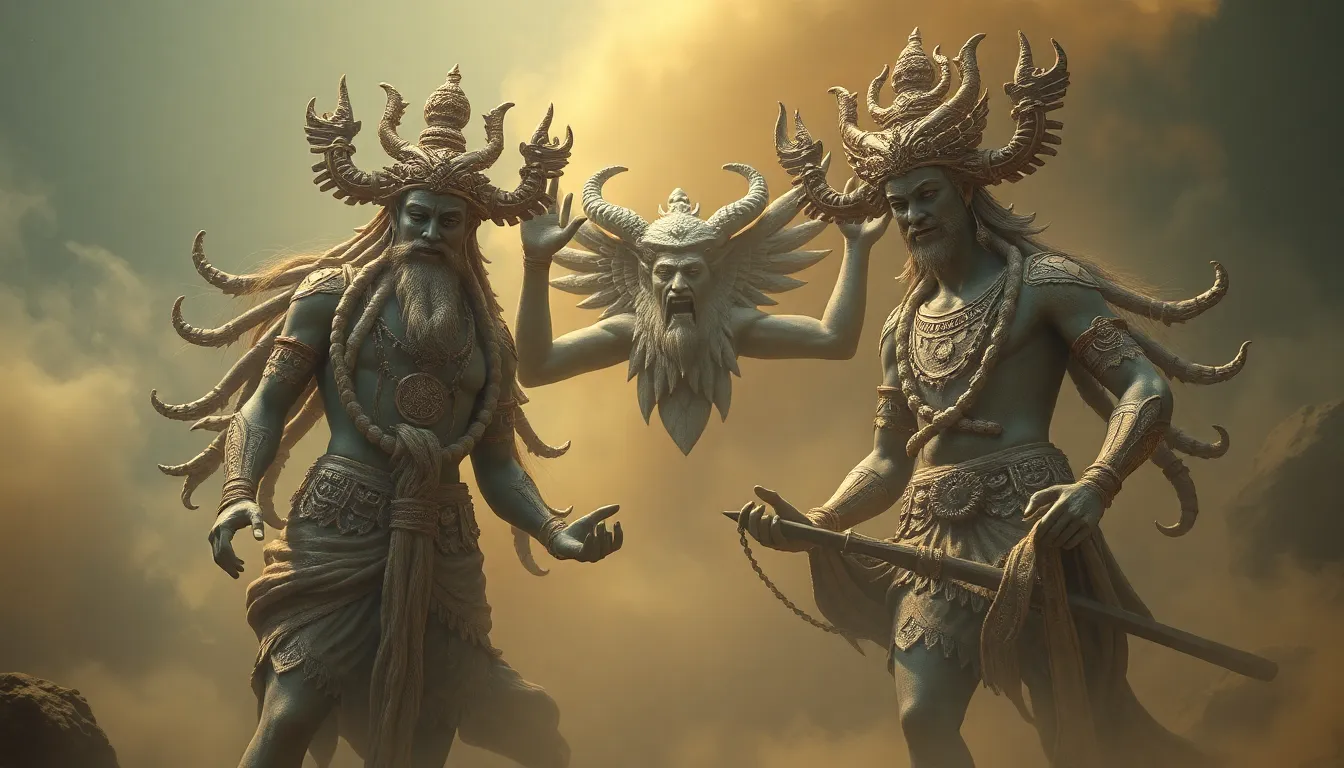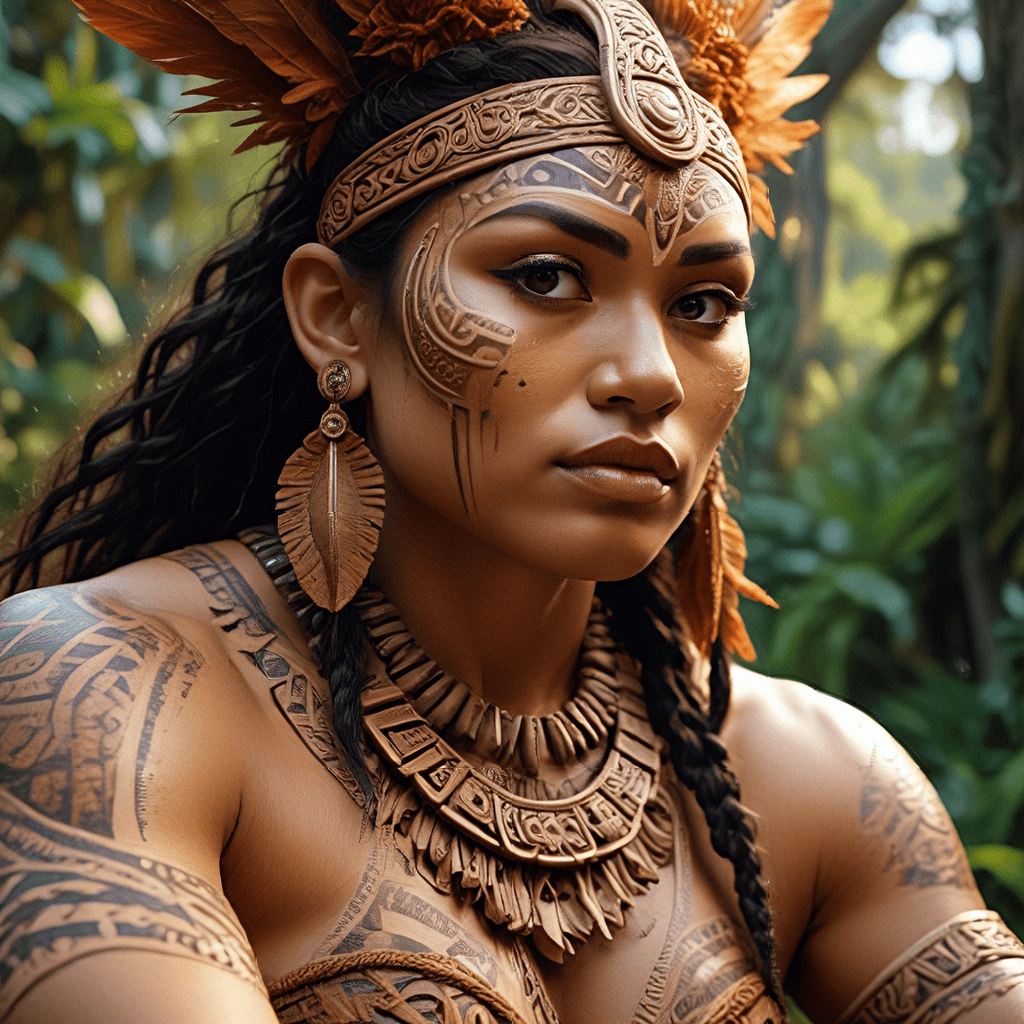The Alluring Myths of Ancient Deities: What They Reveal About Humanity
Introduction: The Enduring Fascination with Ancient Deities
Throughout history, myths have served as a vital component of human culture, providing frameworks for understanding the world and our place within it. Ancient deities, as central figures in these narratives, played crucial roles in shaping societal values, beliefs, and practices. They represented powers beyond human comprehension and offered explanations for the mysteries of life, death, and the cosmos. This article embarks on a journey to explore the myths surrounding ancient deities and what they reveal about humanity.
The Birth of Myths: Understanding Their Origins
Myths often arise from the need to explain the unexplainable. They are born from a combination of cultural history, environmental factors, and human imagination. Early societies relied heavily on oral traditions, where storytelling was paramount. These narratives were passed down through generations, evolving with each retelling. The role of the storyteller was not just to entertain; they were the keepers of collective memory and culture.
- Oral Tradition: Myths were often recited in communal gatherings, allowing for shared experiences among listeners.
- Symbolism: Many myths encapsulated complex ideas through simple narratives, making them accessible to all members of society.
Symbolism and Archetypes: Decoding the Language of Myths
Ancient deities are often rich in symbolism and archetypes that resonate deeply with the human experience. Carl Jung’s theories suggest that these archetypes stem from the collective unconscious, representing universal patterns of human thought and behavior. Some common symbols include:
- Creation: Deities associated with the creation often symbolize new beginnings and the potential for growth.
- Destruction: Gods of war or chaos represent the darker aspects of existence.
- Fertility: Earth goddesses embody life, nurturing, and the cycles of nature.
This symbolic language allows myths to communicate complex emotional and psychological truths that transcend cultural boundaries.
Cultural Reflections: How Myths Mirror Societal Values
Myths provide a lens through which we can examine the values and beliefs of the societies that created them. For instance, Greek mythology reveals much about ancient Greek culture, including their views on heroism, fate, and the capricious nature of the gods. Similarly, Egyptian mythology reflects the importance of the afterlife and the divine right of pharaohs. Case studies of various civilizations include:
- Greek Myths: Tales of gods like Zeus and Athena highlight themes of power and wisdom.
- Norse Myths: Deities such as Odin and Thor embody the values of bravery and sacrifice.
- Hindu Myths: Deities like Vishnu and Shiva illustrate the duality of creation and destruction.
Through these myths, we gain insight into the cultural psyche and societal norms of the time.
The Role of Gender in Myths: Deities and Their Representations
The portrayal of male and female deities in ancient myths often reflects societal views on gender roles and power dynamics. Male gods are frequently depicted as powerful rulers, while female deities may embody nurturing qualities or serve as symbols of fertility. This dichotomy reveals cultural attitudes towards masculinity and femininity:
- Male Deities: Often associated with authority, aggression, and war.
- Female Deities: Frequently linked to fertility, wisdom, and domesticity.
Such representations can illuminate the evolving perceptions of gender and power within different societies.
Myths and Morality: Lessons from the Divine
Embedded within ancient myths are moral teachings that guide human behavior. These stories often serve as cautionary tales, illustrating the consequences of hubris, greed, and other vices. For example:
- Icarus: The tale of Icarus warns against the dangers of overambition and disobedience.
- Prometheus: His punishment for stealing fire from the gods highlights the importance of sacrifice and foresight.
These lessons remain relevant today, influencing our ethical frameworks and societal norms.
The Intersection of Myth and Science: Ancient Deities as Explanations for Natural Phenomena
In ancient times, deities were often invoked to explain natural phenomena that were otherwise inexplicable. Thunder, storms, and earthquakes were attributed to the whims of gods. This reliance on mythology for understanding the universe reflects humanity’s innate desire to find meaning in chaos:
- Thunder and Storms: Zeus, Thor, and other storm gods personified the raw power of nature.
- Creation Myths: Many cultures have creation stories that explain the origins of the earth and humanity.
With the advancement of science, many of these myths have been replaced by empirical explanations, yet they remain a testament to humanity’s early attempts at understanding the world.
Modern Interpretations: The Revival of Ancient Myths in Contemporary Culture
In contemporary society, ancient deities are experiencing a revival through literature, film, and art. Modern interpretations often recontextualize these figures, making them relevant to current issues:
- Literature: Novels and graphic novels frequently draw on mythological themes to explore modern existential dilemmas.
- Film: Movies such as “Clash of the Titans” and Marvel’s Thor introduce ancient gods to new generations, blending myth with modern storytelling.
- Art: Artists often reinterpret mythological scenes to comment on contemporary society.
This revival signifies the continued relevance of these myths in addressing human experiences and challenges.
Psychological Insights: What Ancient Deities Reveal About the Human Psyche
Jung’s theories provide a framework for understanding the psychological significance of ancient deities. These figures represent archetypes that embody fundamental human experiences, desires, and fears. By studying these deities, we can gain insights into:
- Desire: Myths often explore the nature of human longing and ambition.
- Fear: Deities associated with death and destruction confront our primal fears.
- Aspiration: Heroes and gods inspire us to strive for greatness and transcend limitations.
Exploring these themes through the lens of ancient mythology can deepen our understanding of ourselves and our collective human experience.
Conclusion: The Timeless Relevance of Ancient Myths
The study of ancient deities and their myths continues to hold profound significance for humanity. These narratives not only offer insights into the values and beliefs of past cultures but also provide timeless lessons that resonate with our contemporary lives. As we reflect on the allure of these myths, we uncover the enduring truths about the human condition, revealing our shared history and aspirations.



